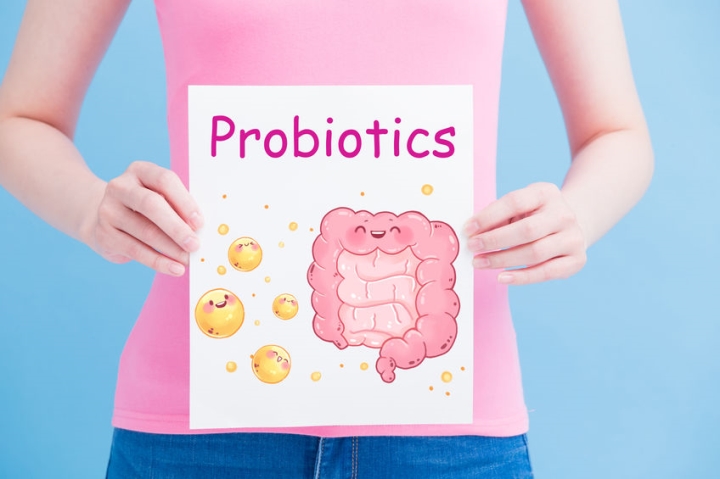

What’s all the fuss about probiotics?
Probiotics are live bacteria and yeast that come with plenty of health benefits - and they’ve been catching a lot of attention from both research groups and mainstream consumers over the past decade. The global demand for probiotic products is enormous, and according to Global Industry Analysts is projected to exceed US$63 billion by 2022. Evidence has been found showing the many benefits of probiotics to treat and prevent certain diseases and of course, as part of a healthy diet.
Consumers worldwide are becoming more concerned about their health, which in turn has led to the increased demand for probiotic products. Here’s why:
- Have you ever been told to trust your gut? Your gut contains both beneficial and harmful bacteria, and our normal gut flora is impacted by many factors, such as medications, lack of sleep, diet, and stress. All of these are contributors that can weaken the immune system. If you consume probiotics daily, it helps strengthen your immune system and reduces the discomfort in your gut that can be caused by too much bad bacteria. So, if your gut tells you it’s time for a little yogurt instead of another margarita, trust it!
- Aside from yogurt, probiotics are also found in other dairy and non-dairy products such as ice cream, smoothies, kefir, miso, kimchi and kombucha. New innovations in probiotic technology are also seeing the rise of probiotics in cookies, granola bars, chocolates, and many other shelf-stable foods. The great news for consumers is that more of the foods and beverages that we tend to eat and drink every day contain probiotics, so we can improve our digestive health without making major changes to our diet.
- A whopping 70% - 80% of our entire immune system is located in our digestive tracts, and our digestive systems are the second largest part of the neurological system. Located in the gut and called the ‘enteric nervous system’, it’s often referred to as the second brain, responsible for creating 95% of the serotonin which can have a significant impact on brain function and mood.
- Probiotics are known to help prevent or reduce the severity of diarrhoea, a common side-effect of taking antibiotics. Research has shown that probiotics can cut bouts of infectious diarrhoea from 1/2 a day up to 2 days (and as anyone who’s ever suffered from diarrhoea knows, once you’ve got it, you want to get rid of it fast). The bacteria strains most likely to help are Lactobacillus reuteri, Lactobacillus rhamnosus, and the probiotic yeast Saccharomyces boulardii.
- Probiotics can improve mental health. A review of 15 human studies found that supplementing with Bifidobacterium and Lactobacillus strains for 1–2 months can improve anxiety, depression, autism, obsessive-compulsive disorder (OCD) and memory.
- There’s actually nothing new about probiotics. Throughout history, probiotics have been found in foods that were fermented and cultured, food preservation measures that were taken long before the invention of the refrigerator. The process of fermentation – although starting to become available in health food stores – has largely been lost in this modern era as it is no longer needed to preserve foods, so we miss out on those vital probiotic benefits.
- Probiotics help improve gut health but as we mentioned earlier, there are a number of factors that introduce bad bacteria to your gut, destroying the good bacteria along the way. Digestive experts agree that the balance of gut flora should be approximately 85% good bacteria and 15% bad bacteria. The worst culprits for annihilating that good gut bacteria are the overuse of antibiotics, sugar, genetically modified foods, inflammatory gluten, emotional stress, alcohol and smoking.
- A study conducted by scientists at Ireland’s Cork University College identified that the probiotic Bifidobacterium infantis may help in the treatment of psoriasis and chronic fatigue syndrome. This study is significant because it shows that a single probiotic can affect the systemic immune system in humans, and not only the mucosal immune system. The mucosal immune system protects the respiratory system, the urogenital tract, and the lining of the stomach.
As with anything though, there are usually two sides to every report, as this story which featured in the New York Times in October 2018 describes. According to the article, the proven benefits involve a very small number of conditions, and probiotics are regulated less tightly than drugs. They don’t need to be proved effective to be marketed, and the quality control can sometimes be lax. Among immune-compromised individuals, probiotics can lead to infections.
On balance though, the research does seem to point to significant health benefits that can be gained from taking probiotics, although there is definitely a case for consuming them through foods that you have fermented yourself. If you want to start stocking up with probiotic-filled healthy foods and beverages and but can’t quite get the budget to stretch that far, we’re here to help. Just check out our fast cash loans from $1,000 - $5,000 to find out how quick and easy it is to get your hands on some extra funds. Once a loan is approved, we can usually deposit the cash into your bank account within a few hours - so you can start planning how to improve your gut health this week!